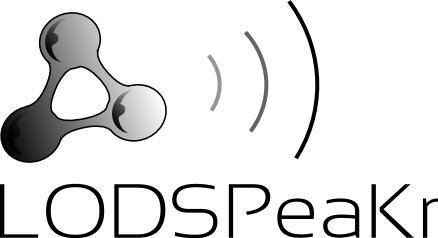Linked Open Data Simple Publishing Kit
HealthData Portal
URL: http://healthdata.tw.rpi.edu/
| Winner of the HealthData Metadata Challenge, this portal provides information about hundreds of datasets, converted to RDF. It also provides a series of statistics and visualizations related to the datasets' conversions. |

|
Bioequivalent drugs
URL: http://graves.cl/bioequivalencia
| A demo using Government data from the Chilean Open Data portal describing bioequivalent drugs for several treatments (in spanish). The source of this application can be found at https://github.com/alangrafu/bioequivalencia. |

|
Global Hunger Index
URL: http://graves.cl/ghi
| A demo showing integration of data from the Global Hunger Index and DBpedia using LODSPeaKr. This demo was created to present it as a lightning talk in the International Open Goverment Conference 2012. The source can be found at http://github.com/alangrafu/ghi. |

|
DocuSPeaKr
URL: https://github.com/alangrafu/docuspeakr
| DocuSPeaKr is a system to publish documentation of an OWL ontology. It is based on LODSPeaKr. It queries a triple store and find all the classes and predicates and displays information about them in a clear form. It supports multilingual labels and descriptions via rdfs:label and rdfs:comment. A demo (in english) is available at http://graves.cl/myStudentOntology/index and in spanish at http://graves.cl/myStudentOntology/index/es. |

|
WWW2012 Mobile Webapp
URL: https://github.com/alangrafu/WWW2012-mobile-webapp
| Using LODSPeaKr, I created a new webapp for WWW2012. It includes wordclouds, historical data of publications displayed in bar graphs, twitter stream and more. |

|
PROV Ontology documentation
URL: http://aquarius.tw.rpi.edu/prov-wg/prov-o
DataFAQs - Linked Data Quality Reports
URL: https://github.com/timrdf/DataFAQs/wiki
| The DataFAQs linked data evaluation framework provides automated, asynchronous feedback to Publishers, Curators, and Consumers about different quality aspects of the data, such as consistency, connectedness, use of best practices, etc. LOSPeaKr is used to publish and analyze the bricks of the FAqT cube |

|
Demo on RPI Centers' funding
URL: http://logd.tw.rpi.edu/demo/rpidemo
Information about farmers markets in the US
URL: http://graves.cl/farmersmarket
| Demo created specially to show some of the features of LODSPeaKr at the Open Government Data Camp (ogdcamp 2011). This demo takes data from Dataset 4384 available at Data.gov. The current copy of the data was taken from a version created at Tetherless World Constellation. This demo also provides some (very) simple search capabilities, based on the zipcode where the farmers market is located. Finally, it integrates data from DBpedia that gives human-readable information about the state where the farmers market is located. |

|
Mobile Webapp for the Federation of Earth Science Informatics Partners
URL: http://aquarius.tw.rpi.edu/essi-lod/instances
| Eric Rozell wrote a mobile webapp for the attendants for the next ESSI conference using LODSPeaKr. It includes data from published papers, sessions, authors as well as keywords and meetings, among other useful information. |

|
Events related to public safety in Troy, NY
URL: http://publicsafetymap.org
Demo: Information about The Beatles
URL: http://lodspeakr.org/beatles/the_beatles
|
LODSPeaKr allows the use of templating based on the type of each resource when it is consumed by humans. There is a default template which provides RDFa, but it is also possible to create your own templates. In this demo, there are templates for foaf:Person, mo:Record and mo:MusicGroup.
You can start navigating the data starting by the landing page about The Beatles, and later you can look at the classes availables, named graphs or do a text search.. Using the data in machine-readable format You can use the data in RDF/XML, Turtle, or N-Triples. Just point your parser (eg. rapper) to a uri. For example, |

|
rapper -i rdfxml -o turtle http://lodspeakr.org/beatles/the_beatleswill return
@prefix rdf: <http://www.w3.org/1999/02/22-rdf-syntax-ns#> .
@prefix ns0: <http://purl.org/dc/terms/> .
@prefix ns1: <http://www.w3.org/2002/07/owl#> .
<http://lodspeakr.org/beatles/the_beatles>
ns0:created "1960-08-01Z"^^<http://www.w3.org/2001/XMLSchema#date> ;
ns0:title "The Beatles" ;
a <http://purl.org/ontology/mo/MusicGroup> ;
ns1:sameAs <http://dbpedia.org/resource/The_Beatles> .



